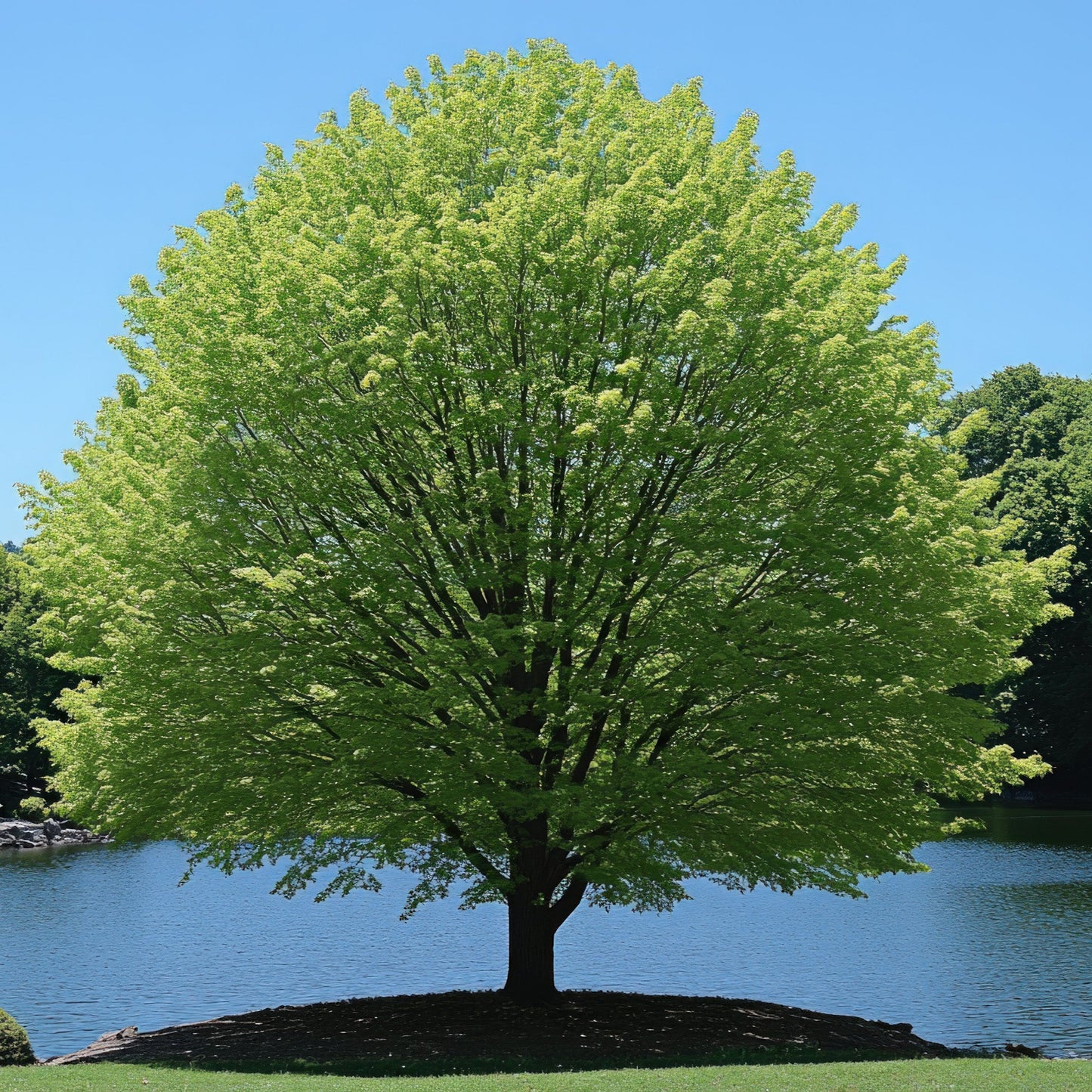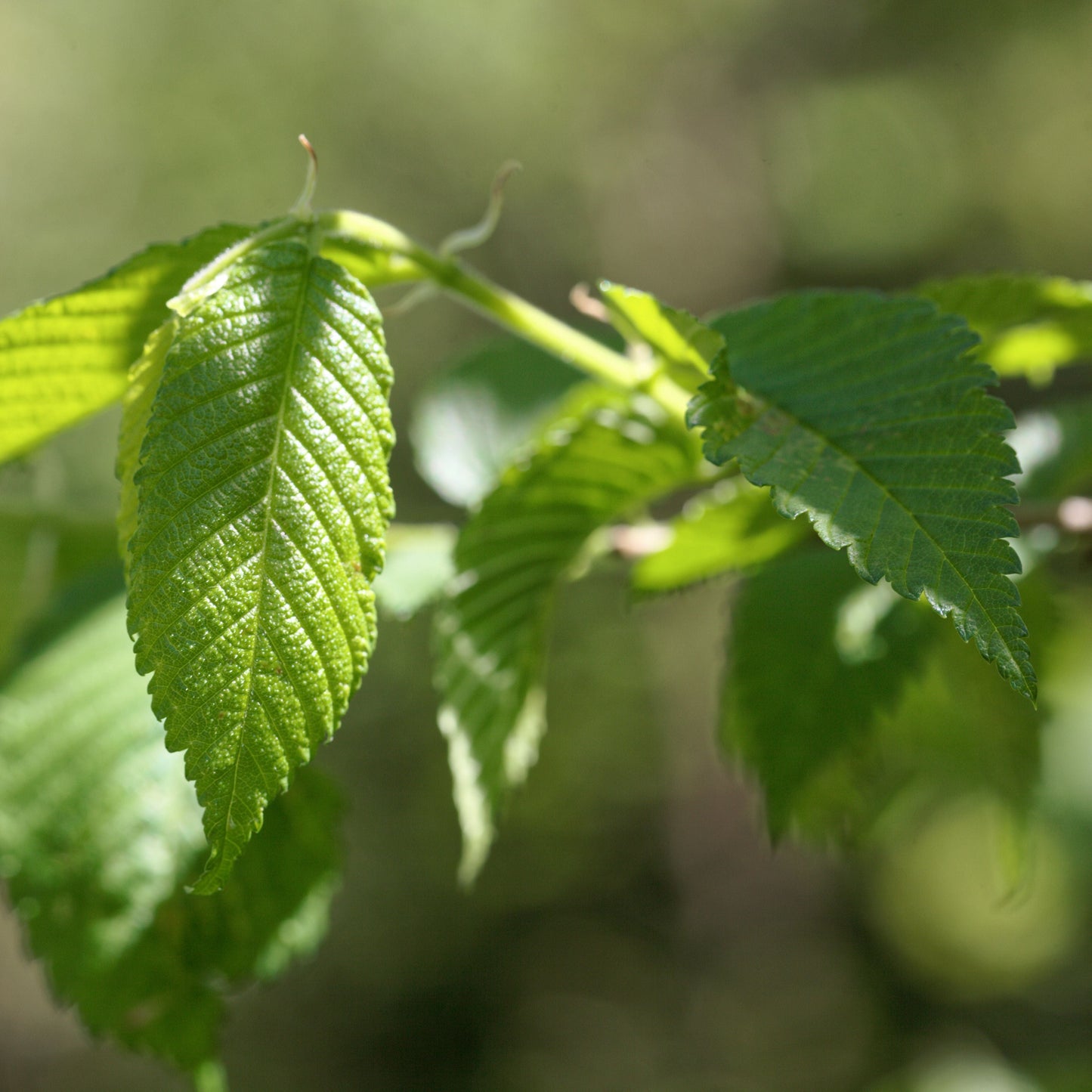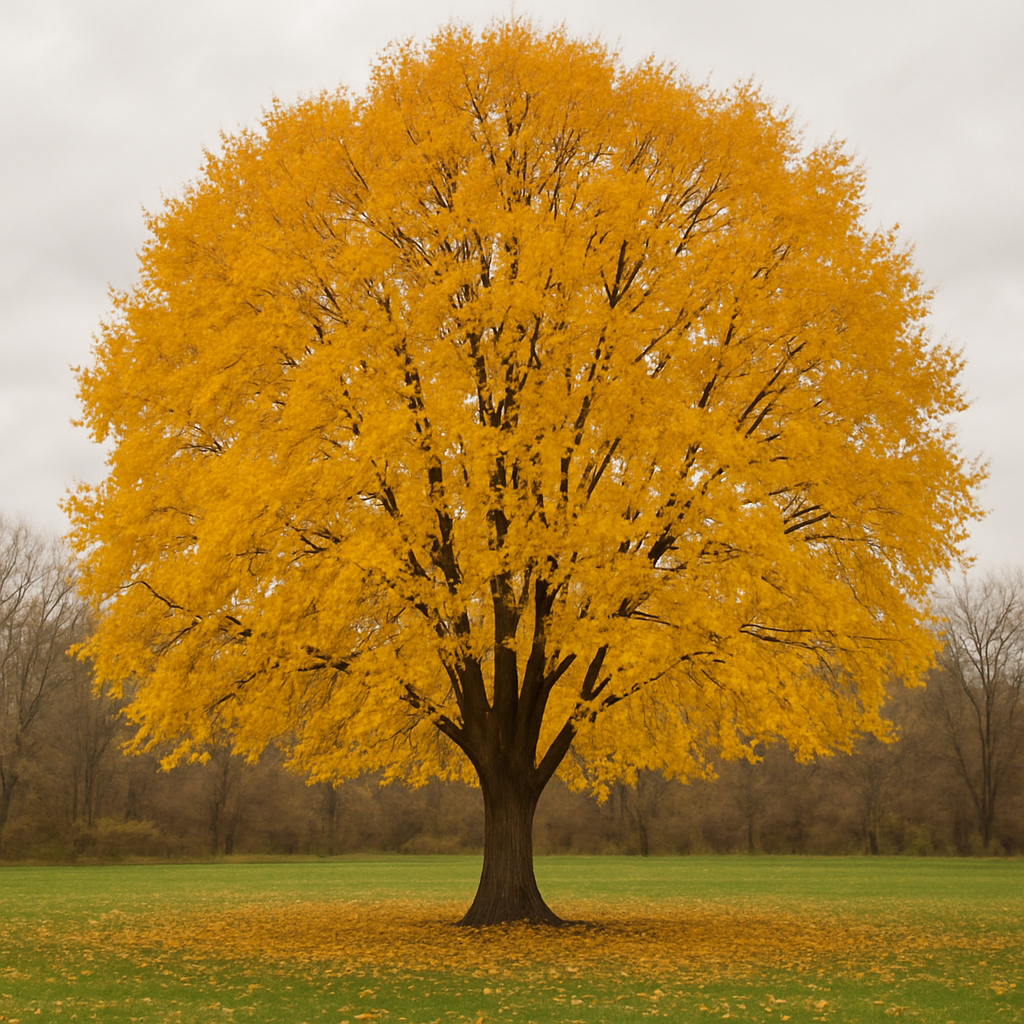Limited Quantities - Reserve Now For Fall
American Elm Tree
American Elm Tree
Couldn't load pickup availability
Ulmus americana
American Elm Tree
The American Elm Tree is a classic shade tree of the American landscape, known for its arching vase-shaped form, broad canopy, and fast growth. Once a staple along streets and campuses, the American Elm is making a comeback thanks to disease-resistant cultivars that retain its majestic beauty and urban adaptability.
Ideal for parks, large properties, streetscapes, and restoration projects, this iconic native tree provides dense shade, wind protection, and a timeless silhouette that defines traditional American design.
American Elm Tree Overview
| Attribute | Details |
|---|---|
| 🌿 Botanical Name | Ulmus americana |
| 🏷️ Common Names | American Elm, White Elm |
| 🌳 Mature Height | 60–80 feet |
| 🌐 Mature Width | 40–70 feet |
| 📈 Growth Rate | Fast (2–3 feet per year) |
| ⏳ Lifespan | 100–200+ years |
| 🧊 USDA Zones | 3–9 |
| ☀️ Sun Preference | Full sun (necessary for optimal form and canopy spread) |
| 🧱 Soil Type | Adaptable to loam, clay, sand, or urban soils |
| ⚖️ Soil pH | Slightly acidic to neutral (5.5–7.5) |
| 💧 Water Needs | Moderate; tolerates brief flooding or drought |
| 🍂 Foliage Color | Deep green in summer; yellow in fall |
| 🌸 Flower Color | Inconspicuous; blooms early spring before leaves |
| 🐝 Pollination | Wind-pollinated; valuable for native wildlife |
| 🌿 Growth Habit | Vase-shaped canopy with arching branches |
| ↔️ Spacing | 40–60 ft for shade plantings or street tree lines |
| 🏡 Landscape Uses | Shade tree, urban forestry, legacy plantings, windbreaks |
| 🧹 Maintenance Level | Low to moderate |
Environmental Benefits
🌿 Provides broad, cooling shade ideal for urban and rural areas
🐦 Offers critical habitat and nesting sites for birds and pollinators
🌎 Aids in air purification, erosion control, and climate resilience
🌳 Valuable for reforestation and historical landscape restoration
Pros & Cons
| ✅ Pros | ⚠️ Cons |
|---|---|
| 🌳 Iconic American silhouette with grand, arching form | 🐛 Historically vulnerable to Dutch Elm Disease in non-resistant strains |
| 🌱 Fast-growing and highly adaptable | ✂️ Requires annual structural pruning when young to avoid weak crotches |
| 🌿 Excellent for shade, windbreaks, and property borders | 💧 Needs monitoring during establishment for moisture and root health |
| 🌞 Thrives in full sun and urban settings alike | 🪵 Large size not suitable for small yards or tight spaces |
| 🧬 Newer cultivars offer increased disease resistance | 🌬️ Mature trees can be sensitive to extreme storm damage |
Planting & Care Guide
🛁 Water thoroughly before and after planting; maintain moisture until established
🕳️ Dig a hole twice as wide as the root spread; plant at natural soil level
🌾 Apply 2–3 inches of mulch around base to reduce weeds and retain moisture
💦 Water weekly during first few years; drought-tolerant once mature
✂️ Prune in late winter to shape canopy and prevent weak branch structure
🧪 Fertilize sparingly with a tree-safe mix in early spring if needed
The American Elm Tree remains a symbol of strength, shade, and classic American charm. With modern disease-resistant varieties available, this native beauty is once again a top choice for those seeking elegant form, deep shade, and lasting landscape value in public spaces or legacy plantings.
Share






